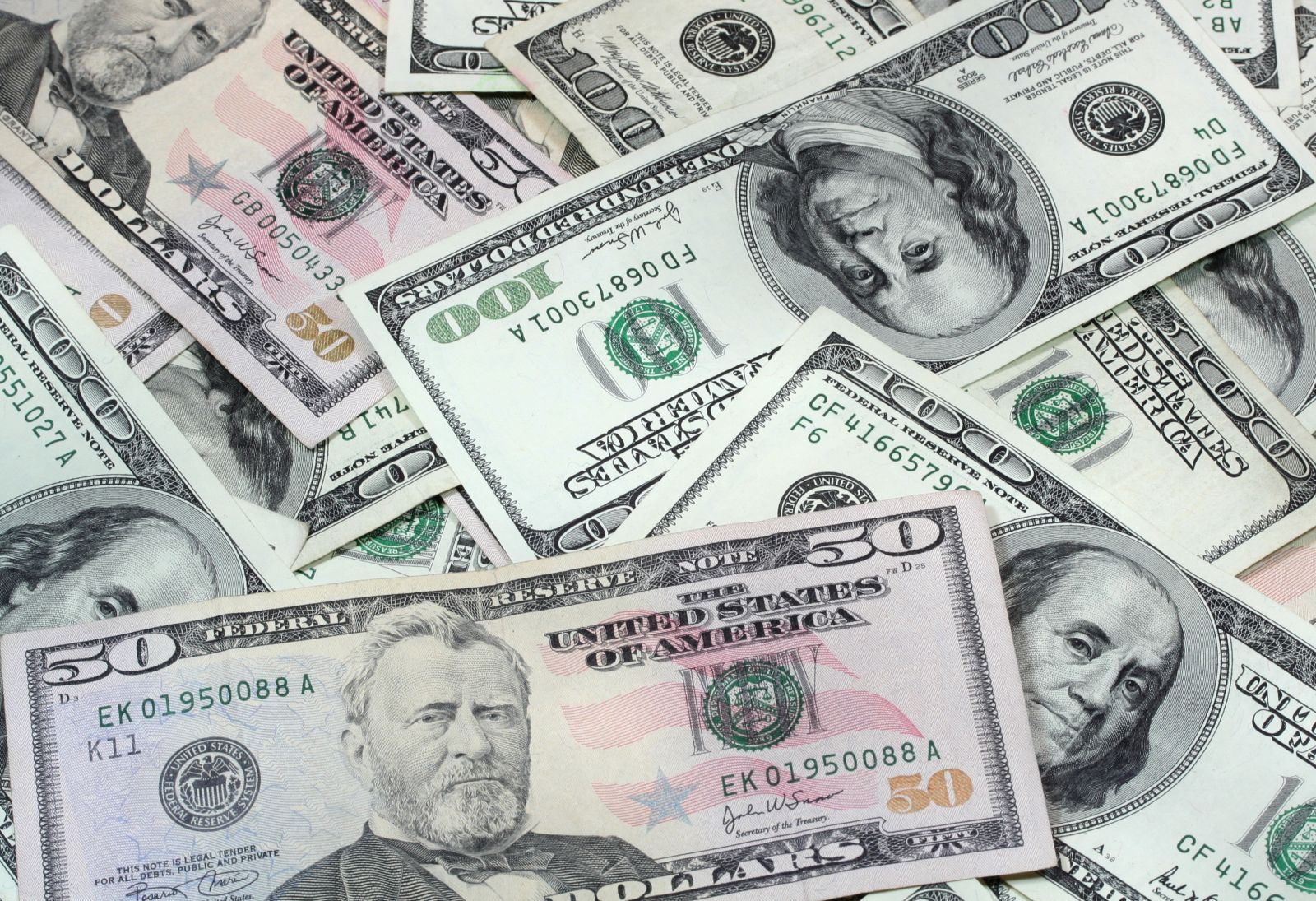
The dollar index (DXY00) on Monday rose by +0.15%. The dollar moved higher on Monday due to an easing of US-China trade tensions, which is positive for global growth prospects and the dollar after President Trump said on Sunday that, “I think we’re going to be fine with China.” The dollar also has support as the alleged loan frauds impacting Zions Bancorp and Western Alliance Bancorp appear to be confined and show no signs of contagion.
Gains in the dollar were limited as Monday’s rally in stocks curbs liquidity demand for the dollar. Also, the ongoing shutdown of the US government is bearish for the dollar. The longer the shutdown is maintained, the more likely the US economy will suffer, a negative factor for the dollar.
The markets are pricing in a 99% chance of a -25 bp rate cut at the next FOMC meeting on Oct 28-29.
EUR/USD (^EURUSD) on Monday fell by -0.09%. The euro was under slight pressure on signs of easing price pressures in the Eurozone that are dovish for ECB policy due to Monday’s weaker-than-expected German producer price report. The euro was also weighed down after S&P Global Ratings late last Friday cut France's sovereign debt credit rating. Losses in the euro were limited due to central bank divergence, with the Fed expected to keep cutting interest rates while the ECB is at the end of its rate-cutting cycle.
German Sep PPI fell -0.1% m/m and -1.7% y/y, weaker than expectations of +0.1% m/m and -1.5% y/y.
Late last Friday, S&P Global Ratings lowered France's sovereign debt credit rating to A+ from AA-, citing the country's budget uncertainty as "elevated" despite the submission of a 2025 draft budget.
Swaps are pricing in a 2% chance of a -25 bp rate cut by the ECB at the October 30 policy meeting.
USD/JPY (^USDJPY) on Monday rose by +0.06%. The yen posted modest losses after Monday’s +3% surge in the Nikkei Stock Index to a new record high, curbing safe-haven demand for the yen. The yen is also under pressure after Japan's ruling Liberal Democratic Party signed a pact to form a coalition with the Japan Innovation Party to set up Sanae Takaichi as prime minister. The yen weakened on concerns about an increased debt supply due to Takaichi’s support for expanded financial stimulus. Losses in the yen were limited due to hawkish comments from BOJ board member Takata, who said the time is ripe for raising the BOJ’s policy interest rate.
BOJ Board member Takata said, "I believe that now is a prime opportunity for the BOJ to raise the policy interest rate as the price stability target has been almost achieved."
December COMEX gold (GCZ25) on Monday closed up +146.10 (+3.47%), and December COMEX silver (SIZ25) closed up +1.271 (+2.55%). Gold and silver prices rallied sharply on Monday and are just below last Friday’s record highs. The ongoing US government shutdown is fueling demand for precious metals as a safe haven. Also, lingering US-China trade tensions are driving demand for safe-haven assets, including precious metals.
Precious metals continue to receive safe-haven support due to uncertainty tied to US tariffs, geopolitical risks, central bank buying, and political turmoil in France and Japan. Also, President Trump's attacks on Fed independence are boosting demand for gold. In addition, recent weaker-than-expected US economic news has bolstered the outlook for the Fed to keep cutting interest rates, a bullish factor for precious metals.
Precious metals prices continue to receive support from fund buying of precious metal ETFs. Gold holdings in ETFs rose to a 3-year high last Friday, and silver holdings in ETFs rose to a 3.25-year high last Tuesday.







